Steve Ballmer cashes in $1.3B worth of Microsoft shares, Apple looked into Kinect technology
Ballmer stock
The Redmond, Wash., company issued a press release Friday detailing Ballmer's plan to sell up to 75 million shares of Microsoft by the end of the year "to gain financial diversification and to assist in tax planning." An SEC filing Friday revealed that Ballmer, in three separate transactions, sold off over 49 million shares of stock for over $1.3 billion.
According to Microsoft's annual proxy filing, Ballmer owned over 408 million shares in the company, which comes to 4.75 percent of the company's available common stock, before this week's sales. By comparison, Bill Gates, who sold off 3 million of his own shares this week, owned 620 million shares at the time of the SEC filing.
CNET reports that Ballmer's may have sold the shares to avoid savings and investment tax hikes that will go into effect in January. With capital gains tax rates increasing to as much as 20 percent, Ballmer may have saved as much as $67 million by selling off stock before January.
In Friday's press release, Ballmer took the time to reaffirm his confidence in Microsoft and its products, in hopes of reassuring investors. "Even though this is a personal financial matter, I want to be clear about this to avoid any confusion," Ballmer said. "I am excited about our new products and the potential for our technology to change people's lives, and I remain fully committed to Microsoft and its success."
Microsoft stock has dropped over 13 percent since Jan. 1. Apple stock, on the other hand, has soared almost 50 percent since the beginning of the year, passing Microsoft in terms of market capitalization to become the world's largest tech company on May 26.
Last week, AppleInsider reported that Apple executives cashed in on $55 million worth of stock options in the month of October.
Microsoft Kinect
Leander Kahney of Cult of Mac reports that Apple was the first place that PrimeSense, the company behind Microsoft's motion-sensing Kinect camera, thought of.
"It was the most natural place for the technology," said PrimeSense CEO Inon Beracha. PrimeSense's camera and infrared sensor setup was developed by engineers in the Israeli military, who apparently hired Beracha to "shop it around Silicon Valley and find partners to commercialize it," the report notes.
Beracha, who called the technology "multitouch that you didn't even have to touch," approached Apple, but initial meetings were rocky. According to the report, Apple was obsessed with secrecy, burdening Beracha with "a stack of crippling legal agreements and NDAs." Eventually, Beracha decided not to deal with Apple, calling the company "a pain in the ass."
Beracha eventually went with Microsoft, who wanted to implement the technology for its Xbox 360 gaming console. The Kinect, which launched in the U.S. on Thursday, has received a mostly positive reception, though some reviewers are waiting for a "killer app" or game for the accessory.
In September, Microsoft Game Studios manager Kudo Tsunoda made the odd comparison that holiday sales of the Kinect would "blow away" sales of the iPad.
 Josh Ong
Josh Ong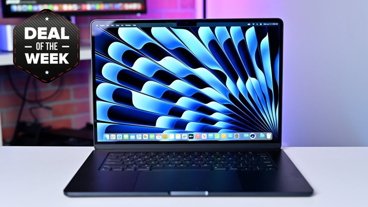













 Christine McKee
Christine McKee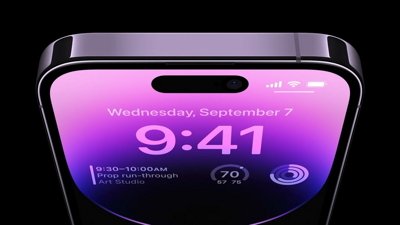
 Charles Martin
Charles Martin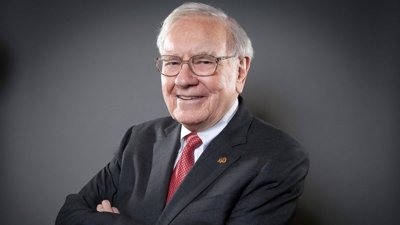
 William Gallagher
William Gallagher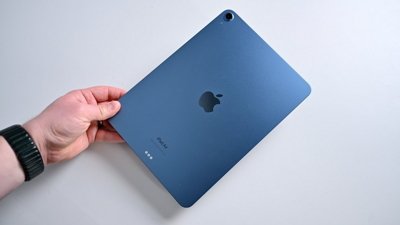
 Andrew Orr
Andrew Orr
 Malcolm Owen
Malcolm Owen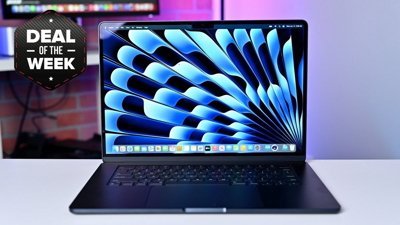

 Chip Loder
Chip Loder







252 Comments
It would have been nice to not have to touch the screen all the time.
Not sure why anyone would compare Kinect to the iPad, they're quite different products.
Goodness. If Ballmer can make 1.3B selling 20% of his stock, why wouldn't he do Microsoft a favor and let a real CEO run that dying company?
I think Kinect will be a huge hit for MSFT. It really is an impressive bit of tech.
OMG.... this is one of the few decisions I would agree with Ballmer on.... hell... if I were in his position I'd sell half. Don't blame anyone who would rather pay 18% Capital Gains tax on $1.3B over 39.5%.... Thank you butthead BO.
As for the Kinect tech.... while kind of cool I guess. It doesn't seem like something useful to Apple at this point in time. They don't have a game console... so Xbox or any of the others makes much more sense... or a more logical fit. Those dissing Apple in several articles I read (not here) are really kind of missing the point. I suppose you could use it on a desktop.... but you can't do it with just one camera like the iSight... or whatever we're calling it now.